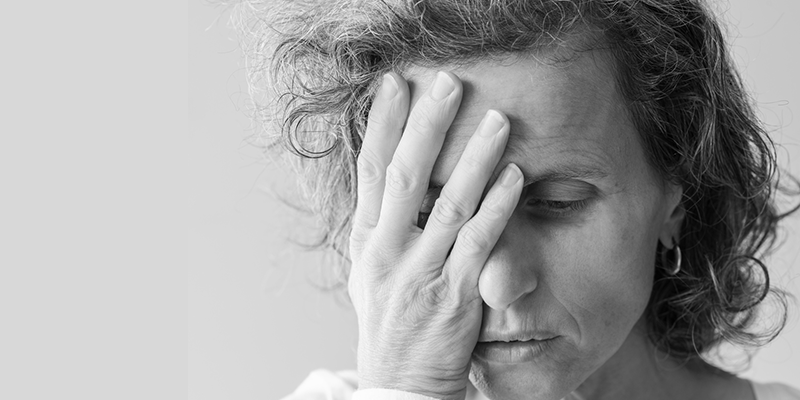
If you’ve suffered a stroke, taking steps to improve your brain health and mood are critical. A study has found that people who become depressed after a stroke may have a tripled risk of dying early and four times the risk of death from stroke compared to people who have not experienced a stroke or depression.
“Up to one in three people who have a stroke develop depression,” said study author Amytis Towfighi, MD, with the Keck School of Medicine of the University of Southern California and Rancho Los Amigos National Rehabilitation Center in Los Angeles, and a member of the American Academy of Neurology. “This is something family members can help watch for that could potentially save their loved one.” Towfighi also noted that similar associations have been found regarding depression and heart attack, but less is known about the association between stroke, depression and death.
What Research Says
The research included 10,550 people between the ages of 25 and 74 followed for 21 years. Of those, 73 had a stroke but did not develop depression, 48 had stroke and depression, 8,138 did not have a stroke or depression and 2,291 did not have a stroke but had depression.
After considering factors such as age, gender, race, education, income level and marital status, the risk of dying from any cause was three times higher in individuals who had stroke and depression compared to those who had not had a stroke and were not depressed. The risk of dying from stroke was four times higher among those who had a stroke and were depressed compared to people who had not had a stroke and were not depressed.
“Our research highlights the importance of screening for and treating depression in people who have experienced a stroke,” said Towfighi. “Given how common depression is after stroke, and the potential consequences of having depression, looking for signs and symptoms and addressing them may be key.”
The Risk
The risk of developing serious brain problems in a person who has a stroke is six to ten times greater than that in the general population. Even a stroke smaller than a pencil-head eraser increases the risk for dementia four to twelve-fold.
How to Reduce Your Stroke Risk
A stroke is a single, damaging attack, but the risk factors that lead to a stroke, such as high blood pressure, smoking, heart disease, and diabetes, develop over a long time. You can reduce your stroke risk by taking the following simple steps:
• Keep blood pressure under control. Check your blood pressure often and if it’s high, follow your doctor’s advice on how to lower it. Treating high blood pressure reduces the risk of both stroke and heart disease.
• Stop smoking. Cigarette smoking is linked to an increased risk of stroke and heart disease. The risk of stroke for people who have quit smoking for two to five years is lower than that for people who still smoke.
• Exercise regularly. Exercise makes the heart stronger and improves circulation. It also helps control weight. Being overweight increases the chance of high blood pressure, atherosclerosis, heart disease, and adult-onset (type 2) diabetes. Physical activities like walking bicycling, swimming, and tennis lower the risk of both stroke and heart disease. Talk with your doctor before starting a vigorous exercise program.
• Eat a healthy, balanced diet and control diabetes. If untreated, diabetes can damage the blood vessels throughout the body and lead to atherosclerosis.
We Can Help
There are many ways to optimize your brain and your mind. You CAN create a brain healthy life by learning how to love and care for your brain and body. If you, or someone you love, could benefit from an evaluation at Amen Clinics, call our Care Coordinators today at 888-288-9834 or tell us more online to schedule an appointment.





Re: “Depressed stroke survivors may face triple the risk of death”
Strokes and Traumatic Brain Injuries are both classified together as “Acquired Brain Injuries” because they’ve ever both suffered by typical people AFTER their birth.
Regards
Comment by Derick Poremba-Brumer — May 25, 2018 @ 4:36 AM
Depressed stroke survivors can greatly benefit from art therapy.
Comment by Darci — May 25, 2018 @ 5:44 AM
I don’t understand what they died from. It doesn’t even say if it was a general number. If I understood correctly this applies to those patients who developed depression after stroke. What is the death rate of stroke patients who do not develop depression? What Is the death rate of people with depression who have not had a stroke compared to the population who have had neither of these conditions?
Where does the data come from that is spoken about generally by Dr Towfighi?
I found this scary. It seems people with depression, among the most common and treatable brain illnesses are doomed and will be suffering from an illness that’s painful and frightened of a second stroke. Mostly it seems like depressives will have a short unhappy life.
Comment by Margaret Hamilton — May 30, 2018 @ 2:09 PM
Please email me articles on vascular dementia following a stroke. Dr. Amen articles and research would be helpful. My wife had a stroke May 2016 . Her dementia comes and most of the time she has short-term memory problems that frustrate her. Please suggest any ideas to encourage her and me as care-giver.
Comment by Jim Worthington — March 8, 2022 @ 9:32 PM